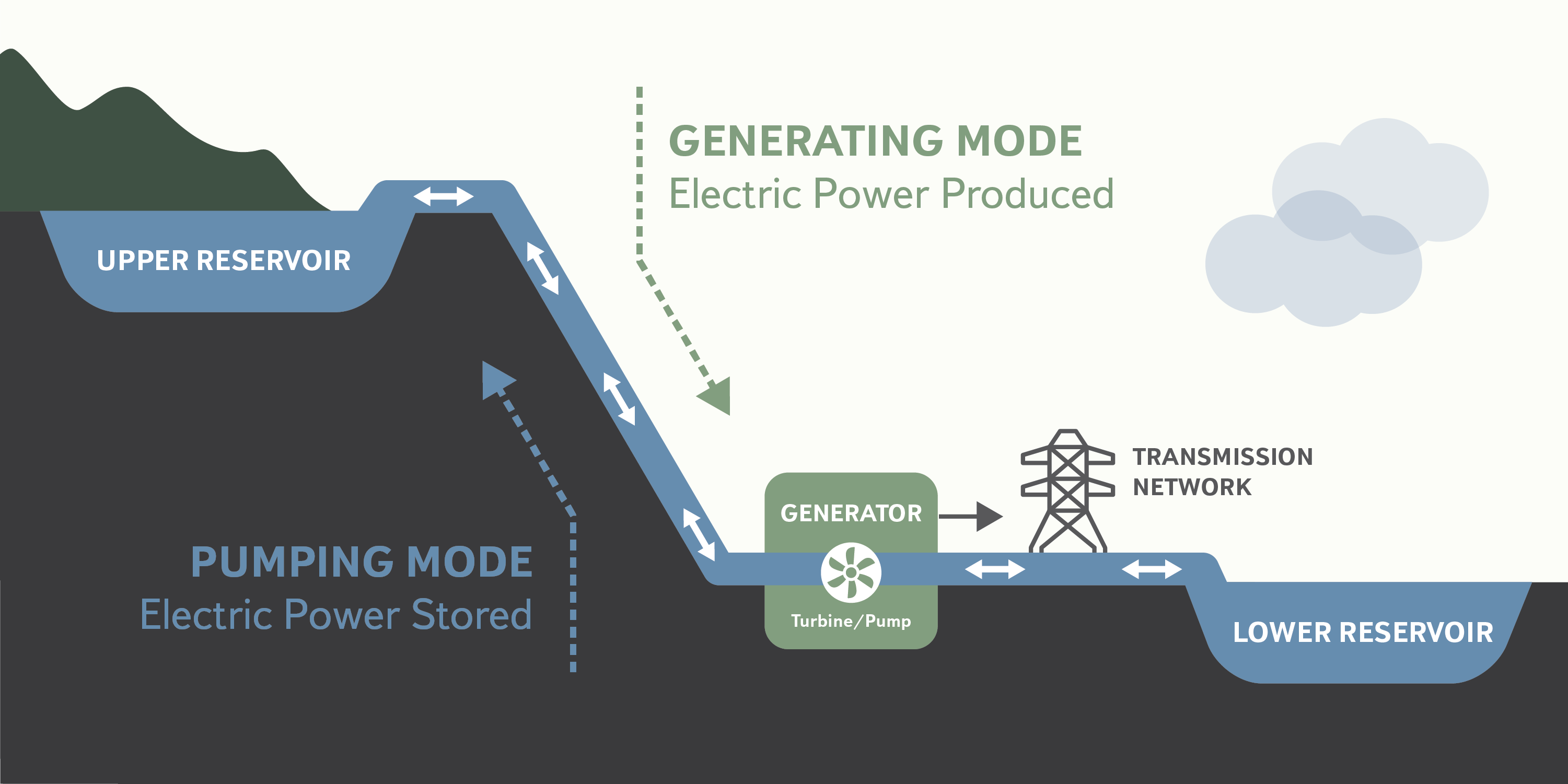Overview
The Lewis Ridge Pumped Storage Project will strengthen and stabilize the power grid by delivering 24/7 on-demand electricity from a proven, reliable technology. Located in Bell County, Kentucky at a former coal mine, the $1.3 billion+ project will create 1,500 jobs and deliver enough clean energy to power about 67,000 homes annually.
Project at a glance
Transforms a former coal mine into an energy asset
Provides enough electricity to power 67,000 homes
Offers 8 hours of energy storage daily
Creates 1,500 construction jobs
Contributes millions of tax revenue
How It Works
Pumped storage facilities rely on gravity to produce energy. The system moves water between a lower reservoir and an upper reservoir. When energy is plentiful, excess power is used to pump water from the lower reservoir to the upper reservoir. Then, when demand for power is high, water is released from the upper reservoir and used to turn hydroelectric turbines to generate on-demand electricity. This on-demand energy is critical to ensuring reliability during extreme weather events and to also maintain the stability of system in daily operations.
The system is filled with water once, and then re-uses that water, over and over. It repeats the cycle, continually storing and dispatching renewable energy.

Project Timeline
-
November 2021
Rye Development filed a preliminary permit application with FERC
-
March 2022
FERC granted order issuing preliminary permit.
-
October 2022
Rye filed a pre-application document (PAD) and Notice of Intent to file a License Application with FERC
-
September 2024
Rye submits the draft license application to FERC
-
Q2 2025
Rye plans to submit final license application to FERC
-
Q2 2027
FERC expected to issue a decision on license
-
2027 - 2031
Construction phase
-
2031
Operational
Go here to learn about the technical details of the project.
